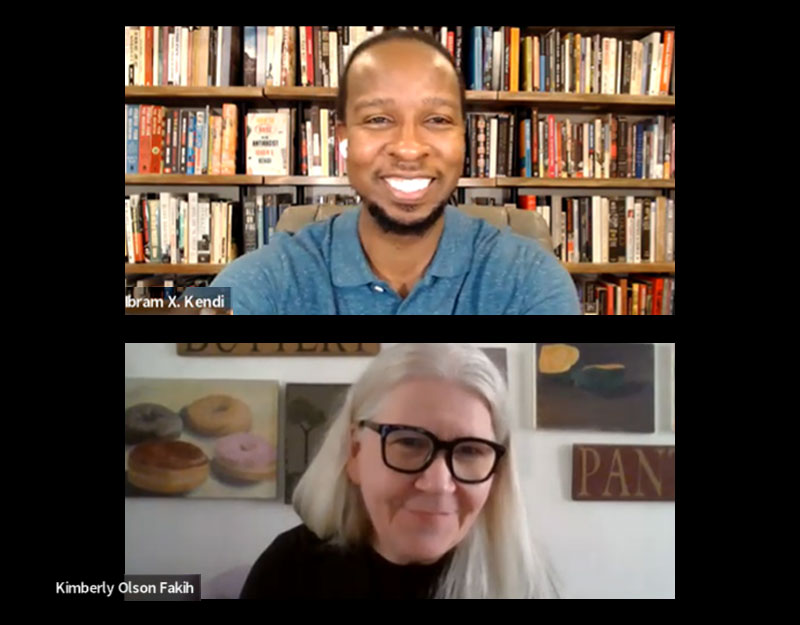Review of the Day: Crab Cake by Andrea Tsurumi

- Crab Cake: Turning the Tide Together
- By Andrea Tsurumi
- Houghton Mifflin Harcourt
- $17.99
- ISBN: 9780544959002
- On shelves now
These days it’s not uncommon to walk into the children’s room of a bookstore or library and find yourself surrounded by a plethora of picture books that tackle trauma. Once the purview of specialty presses, it’s a little sad to say, but the state of the world and news cycle in the early 21st century has necessitated more authors and publishers to step up to the plate and hand out comfort in 32 page increments. There is nothing wrong with such books in principle, but for a librarian that’s always looking for the “rarest kind of best” in their picture books, such message-driven texts can be dull. Inevitably they forgo whimsy in the face of reality. If there is a metaphor involved, the book (which is probably a European import) runs the risk of being too oblique. What I wouldn’t give for a book that tackles the notion of how you can live through something terrible with calm fortitude and a keen sense of when, and when not, to inject some humor. In Crab Cake by Andrea Tsurumi, the book effectively establishes normality, disrupts it with horror, and then assures the reader that normality can return. Heavy stuff for a story about a little crab that bakes.
Below the sea the creatures of the deep live their daily lives. They might be sea turtles or tangs or scallops, but all of them have their parts to play. Crab? Crab bakes cakes. Large, strange, underwater sea cakes with frosting and algae and oyster shells. Back and forth we see the fish and lobsters and sharks and eels flittering about, while at the same time Crab bakes cakes. Then one night a boat, laden with human garbage, mistakenly dumps its cargo into the deep. Frozen with horror, no one knows what to do. That is, until Crab bakes a cake. Encouraged by this small act, everybody comes together to eat and talk and formulate a plan. And when that plan comes into play, the solution is sweet and neat. Everything goes back to normal, and Crab? Crab bakes cakes.
ADVERTISEMENT
ADVERTISEMENT

It’s interesting to compare this book to Tsurumi’s previous book, Accident. That story was this rolling series of chaotic events that snowball bigger and bigger and bigger with every page until culminating into true pandemonium. The tone of Crab Cake is entirely different. First of all, the book is designed to fool the average reader. I know that you’ve probably encountered picture books with a fictional premise, filled with facts in the sidebars. At first that appears to be Crab Cake’s general look, though it is punctuated repeatedly with the inherently ridiculous notion of a crab baking underwater. Amusingly, it’s dealing with the same logistical problems behind this that you might find in an episode of Spongebob Squarepants. And while there is a lot of undersea action going on in these pages, you don’t really think it’s much like Accident until the moment that garbage barge dumps its cargo into the sea in a storm. The grey/green image of the garbage flying has a distinct Accident feel to it, but what follows couldn’t be more different. There’s just this two-page silent spread of the junk in an underwater pile. No life nearby. Then, in subsequent pages, silent, horrified sea creatures. No words. Just staring against a backdrop of colors, sickly and bland. If Accident was about taking responsibility for your mistakes, Crab Cake is about taking care of yourself when the mistake is not your own.
Let’s go back to thinking about those picture books that show kids how to feel in the face of world disasters. Whenever something particularly awful appears in the news, you’ll hear people quoting Mr. Rogers. I think the line goes, “When I was a boy and I would see scary things in the news, my mother would say to me, ‘Look for the helpers. You will always find people who are helping’.” There’s comfort in knowing that other people are going to be there to help when things get bad. But what Crab Cake does is a little different. First, it maps out the steps of a tragedy. There’s the initial shock and subsequent fear. Then comes the desire to do something. Crab’s contribution is to produce the food that brings the undersea community back together. Eating together suggests normalcy. Once you have that in place you can start to make plans on how to solve your problem (in this case, an underwater trash mountain). Here the creatures use their own special skills to work together (I was particularly fond of the clam that just shouts encouragements). So what a kid is going to get from this is that even when things are terrible, there is a way to fix them if people communicate and help one another. Big “if” there, I know.

With the whole of the ocean at her disposal, Ms. Tsurumi could have chosen any underwater denizen as the titular baker. Her choice of crab has some notable advantages. Importantly, two claws (for easy gripping and baking), and six legs (for maneuverability). But even more important? No mouth. Why this choice? Most of the creatures in this book, after all, are talkative types. It’s not as if crab doesn’t speak. And it not as if crab doesn’t express emotions. But in keeping it from having a mouth, Tsurumi for the most part makes Crab into a means to an end. Its determination in the face of disaster matches its determination before the disaster ever happened.
Because Crab Cake is a bit more message-driven than Accident it has a harder road to hoe. Even so, Tsurumi’s style is inherently endearing. You know what it is about her drawings that makes them work so well? The eyes. They’re rendered in a cartoon-style without being cartoonish, if that makes any sense. I think, again, of that image of the sea turtle staring at the garbage, aghast. It takes a real hand to know how to play that line between humor and horror. Certainly this won’t be the first book librarians think to reach for when parents walk in asking for books that help kids understand how to process trauma. It’s a bit subtler than other books that tackle that topic. Even so, I think it probably does a better job than a whole slew of the didactic, moralistic tripe out there. This is a book with a ridiculous premise that dares to deal with raw emotional weight, and somehow, bizarrely, the combination works. Cake may not save the world, but when times are hard, it’s amazing how it helps make everything just the tiniest bit better.
On shelves now.
Source: Galley sent from publisher for review.
Filed under: Best Books, Best Books of 2019, Reviews, Reviews 2019
About Betsy Bird
Betsy Bird is currently the Collection Development Manager of the Evanston Public Library system and a former Materials Specialist for New York Public Library. She has served on Newbery, written for Horn Book, and has done other lovely little things that she'd love to tell you about but that she's sure you'd find more interesting to hear of in person. Her opinions are her own and do not reflect those of EPL, SLJ, or any of the other acronyms you might be able to name. Follow her on Twitter: @fuseeight.
ADVERTISEMENT
ADVERTISEMENT
SLJ Blog Network
One Star Review, Guess Who? (#202)
Exclusive: Giant Magical Otters Invade New Hex Vet Graphic Novel | News
Parsing Religion in Public Schools
Take Five: LGBTQIA+ Middle Grade Novels
ADVERTISEMENT







